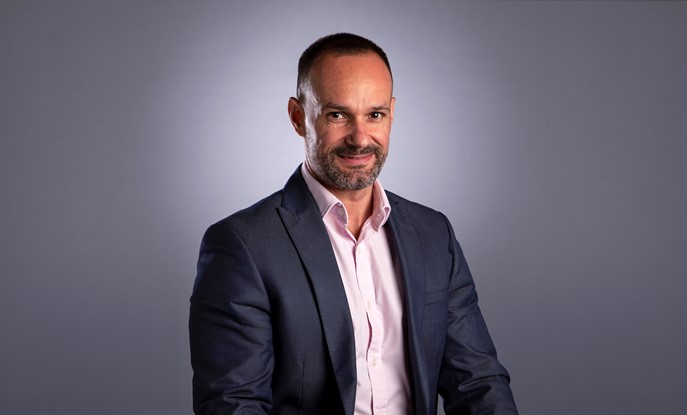Newcastle College has been leading the way in green skills training for the North East’s energy sector for over a decade now. Principal Scott Bullock explains how the College works with industry leaders to ensure that new jobs set to be created within green energy can be filled by skilled people with the right knowledge and experience.
Offshore wind and renewable energy is one of the North East’s fastest growing industries and has been a priority area for continued investment and growth for many years. Newcastle has a target to reach Net Zero by 2030 – 20 years sooner than the government’s national target. With more than 17,000 new jobs expected to be created in this time, and a proud industrial heritage and pioneering history, it makes sense that the North East is at the centre of the UK’s green energy revolution.
As we look towards those targets, everyone has a personal and social responsibility to try and become more sustainable and conscious of their carbon footprint, and businesses and educators like us even more so. As part of NCG, the country’s largest group of colleges, we are working towards a number of environmental commitments that will support our goal of becoming the most sustainable college group in the UK.
We have a responsibility to educate our students on these issues and that is why we have appointed our first Sustainability and Curriculum Officer, Liam Carr, to ensure all students have sustainability embedded in their education to increase their future employability prospects.
Perhaps our most important role though, is to ensure that those new jobs set to be created within green energy can be filled by skilled people with the right knowledge and experience.
I am proud to say that Newcastle College has been leading the way in green skills training for the region’s energy sector for over a decade now. Our award-winning Energy Academy opened in Wallsend in 2012, delivering advanced training in offshore renewables, and subsea and renewable energy engineering. The Academy is recognised as a leading training provider in the North East and provides unique opportunities for our learners to gain practical, hands-on experience in world-class facilities, along with the knowledge and skills they will need to succeed in their future career.
As the region’s largest further education college, and the UK’s largest provider of HE in an FE setting, our aim is to create the workforce of the future. That applies to all sectors, with our energy and engineering curriculum including courses for 16–18-year-olds, alongside degrees and part-time courses for adults. We are not only training the next generation of engineers; we’re upskilling and reskilling those already working in the energy sector to keep up with the changing needs of our industry leaders. As the region and the country begins moving towards Net Zero, this type of training is crucial to those experienced engineers within the oil and gas industries, so they can transition quickly to roles within renewable and clean energy.
It is our partnerships and working relationships with industry that really shape our Energy Academy, from the facilities we provide to the courses we offer. Our curriculum is constantly under review to make sure it is meeting the current and future skills needs of local businesses in the sector. We meet regularly with an industry advisory board to find out what the latest developments are in the sector, as well as the skills gaps they are facing now, or foresee in the future, as technology plays an ever-increasing role in the industry. This employer-led approach to our curriculum means we can focus on ensuring that our qualifications are meaningful and make our students employable.
Since 2021 we have been in partnership with local fabrication specialist WD Close, delivering apprenticeships in Welding and Fabrication, which are vital to supporting the energy engineering industry and its supply chain. So far, more than 40 apprentices have joined through the partnership, and WD Close has committed to training over 100 apprentices in the next five years. In June 2022, the partnership’s first female apprentice Courtney Newton was named The Welding Institute’s Apprentice of the Year. In addition, WD Close has recruited six graduates from Newcastle College University Centre’s energy and engineering degrees, where they are working as part of a team leading on ground-breaking projects for the region.
By joining forces with some of the industry’s biggest leaders, students at our Energy Academy benefit from access to state-of-the-art training facilities. This includes one of the world’s most advanced immersive Hybrid Reality (iHR) wind turbine training platforms, installed at our Energy Academy in 2019 thanks to our relationship with Offshore Renewable Energy (ORE) Catapult.
Most recently, we were awarded £2million from the Office for Students (OfS) to invest into STEM facilities. The decision to spend some of this funding on an autonomous robot, industrial drone, a subsea inspection Remote Operated Vehicle and Electric Vehicle charging equipment, was made in conjunction with local industry leaders including Port of Blyth, ORE Catapult, and the Subsea North East group of companies.
In addition to the training we already offer through our Energy Academy, we’re involved in a number of initiatives that will see new training developed specifically to meet the needs of the North East’s green sector.
In particular, we are leading a regional research project in partnership with Newcastle University, Education Partnerships North East, ORE Catapult and the North of Tyne Combined Authority. Now in its research phase, the project will ultimately support the development and delivery of courses, and the green technology requirements to meet the future skills needs of the green sector. The results will provide a detailed picture of skills needs and job opportunities in both the short and medium term, offering real insight into the skills training that should be developed for the next three years. In addition, we hope it will provide foresight of the potential longer-term opportunities within the sector.
The research-led programme will also tackle the issue of attracting young talent into the sector, developing teaching collateral and providing support to schools to embed green technology into their current STEM programmes and encourage more young people to consider a career in the sector.
The project will enable the development of specific green technology training to facilitate mature entry into emerging green technology sectors while ensuring our qualifications continue to meet employer needs. Ultimately, it will link our learners with emerging job opportunities in the sector, providing local employers with a skilled and talented workforce.
We’re also part of a regional initiative that has been awarded £2.4million from the Department for Education’s Strategic Development Fund and will also look to develop and deliver courses to meet the region’s skills needs in green power and green transport. Partners of the project include other local colleges and training providers, who will work alongside industry and employer representative bodies such as North East England Chamber of Commerce, North East Automotive Alliance and Energi Coast to develop courses in battery manufacture, vehicle electrification, micro renewables and offshore wind while investing in specialist, technical equipment to support teaching, training and delivery.
Newcastle College’s strong history in delivering (and leading the way in) skills training for the green energy sector, means we’re more than ready to meet the emerging and increased demands of the sector. As new technologies emerge, as our target of Net Zero gets closer and as new jobs become available in the industry, it is vital that we continue to work collaboratively with employers and other regional partners to ensure we are developing the qualifications of the future and supporting our region (and the rest of the country) to become cleaner, greener and more sustainable.
Please do get in touch if you can support any of our projects, if you want to work with us on our curriculum development, or simply want to tap into the talents of our students. We’re here to support you.

